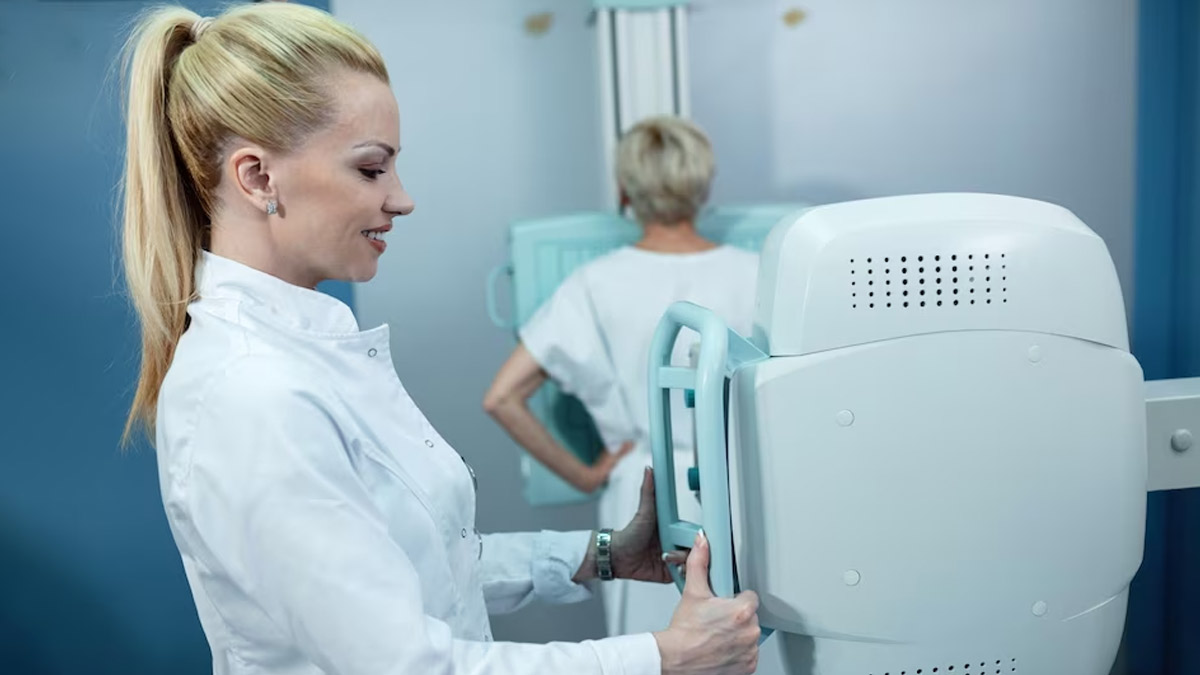
A majority of breast cancer cases fall under the well-known subtypes which are called ductal carcinoma and lobular carcinoma, there are a few lesser-known forms that categorise them as rare breast cancers and require equal attention.
Table of Content:-
According to Indian Council of Medical Research, breast cancer is now the most frequent female cancer in urban India, with an annual incidence of roughly 1,44,000 new cases.
Rare Breast Cancer
As per Dr Raj Nagarkar, MD & Chief Surgical Oncologist at HCG Manavata Cancer Centre Nashik, there are several subtypes of uncommon breast cancer, each of which differs from the more common ones in some respects. Rare breast cancer subtypes include:
- Inflammatory breast cancer (IBC)
- HER2-positive breast cancer
- Triple-negative breast cancer
- Phyllodes cancer
These kinds frequently have diverse medical variables and biological profiles that necessitate various therapeutic approaches.

Diagnosis and Treatment
“Due to the less frequent occurrence and lack of awareness among medical professionals, diagnosing rare breast cancer forms can be difficult. The symptoms are common as of an infection which can lead to misdiagnosis or slowed diagnosis and it can affect the patients' overall well-being. Moreover, the treatment options available for breast cancer might not be effective for rare breast cancer cases,” said Dr Nagarkar, adding, it is important to be aware of the symptoms such as orange-peel texture of skin, firm lumps in the breast, rapid breast growth, changes in the breast shape or size.
Also read: 6 Leading Causes Of Lung Cancer In India
If a patient experiences any of these symptoms, they must consult the doctor immediately for early detection and treatment of this cancer.
“Rare breast cancers do not have wider treatment options but targeted therapies are essential as each subtype of rare breast cancer has its own genetic form and growth characteristics. For instance, medicines that specifically target the overexpression of the HER2 protein are needed for HER2-positive breast cancer”, Dr Nagarkar stated.
Similar to this, other therapy modalities are required for triple-negative breast cancer, which is known for lacking hormone receptors. Therefore, Precision medicine and personalised treatment strategies are essential in treating rare breast cancers.
Advancements in treating Rare Breast Cancer
Cancer therapy paradigms are being completely rewritten thanks to the advancements in genomics and personalised medicine.
“Researchers are paving the way for more effective medications with fewer side effects by customising therapeutics based on the biological characteristics of each subtype. However, clinical trials are crucial in the effort to solve the challenges of rare breast cancers. These studies not only assess the effectiveness of novel medications but also give patients access to advanced treatments that might not otherwise be available,” said Dr Nagarkar.
Rare breast cancers may be less prevalent, but considering its symptoms and lack of treatment options, it is essential to be informed and aware of this disease. RBC's subtypes pose challenges that require increased awareness, specialised care, and collaborative efforts within the medical industry.
The advancement in understanding, identifying, and treating these less well-studied forms of breast cancer is driven by advocacy groups, patients, and researchers alike. It is essential to know that each patient's condition is different and by focusing on the rare subtypes, doctors will be able to diagnose and treat the patient effectively.
Prevention
Though rare breast cancers are uncommon; it is recommended to schedule regular screenings such as mammograms and other clinical tests that will help in the early detection of the disease.

Also read: How NOT To Mistake Colorectal Cancer For Common Gastrointestinal Disorders
Maintaining a healthy and balanced diet, as well as engaging yourself in regular physical activity, will help to prevent the development of this disease. Breastfeeding may reduce the incidence of certain breast cancers, but if the patient has a family history of this sort of tumour, they should be cautious to avoid any serious complications. Individuals can lower their odds of having rare breast cancer by taking these precautions.
Also watch this video
How we keep this article up to date:
We work with experts and keep a close eye on the latest in health and wellness. Whenever there is a new research or helpful information, we update our articles with accurate and useful advice.
Current Version